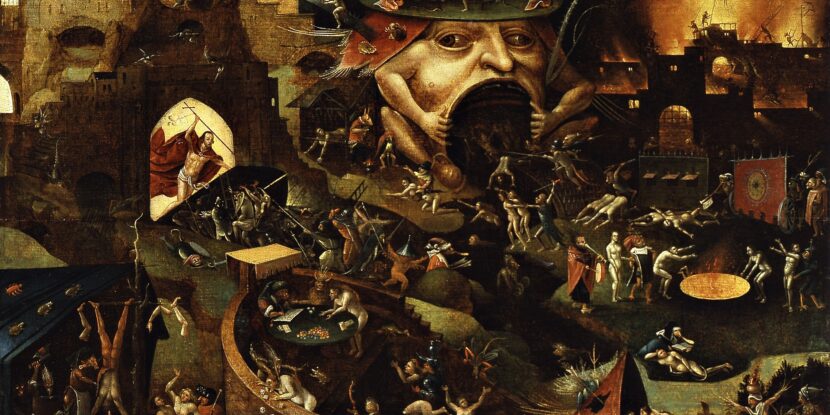Holy Saturday marks the end of Holy Week. Sometimes, it is called Black Saturday – a bleak day, for the crucified Christ lay dead in His tomb, His family, and His disciples in mourning.
His resurrection was yet to occur and not anticipated by those who loved Him – though He had foreshadowed it when he confronted the priests in the Temple of Jerusalem.
Traditionally, there are no baptisms, except in emergencies, marriages, or other sacraments offered on Holy Saturday, at least until the Easter Vigil begins at sundown. It is a time for mourning, with some Catholic countries, such as Poland, installing a Tomb of the Lord in churches and throwing a white veil over the monstrance, used to carry the “hosts” given to parishioners during the Eucharist.
But it was not a time for mourning for those beneath the earth, for it was on that day that Jesus was conquering Death.
THE HARROWING OF HELL.
“I believe in God, the Father almighty, Creator of Heaven and Earth, and in Jesus Christ, His only Son, our Lord,” reads the Apostles’ Creed, a fundamental confession of faith for Western Christians, including all Catholics and many Protestants.
“He was conceived by the Holy Spirit and born of the Virgin Mary. He suffered under Pontius Pilate, was crucified, died, and was buried. He descended into Hell,” it continues.
That descent took place on Holy Saturday. The First Epistle of Peter explains that Jesus “went and preached to the spirits in prison, who formerly were disobedient” – those who lived before the crucifixion, when He suffered for “the just and the unjust” alike.
Church tradition describes this as the Harrowing of Hell or Descensus Christi ad Inferos. It is a moment of triumph often depicted in medieval art, with Christ, his cross in hand, breaking down the doors of Hell to free its prisoners, the fallen angels crushed or fleeing before Him.
A SECOND CHANCE?
C.S. Lewis, the children’s author and great friend of J.R.R. Tolkien, believed Christ’s preaching to “the spirits on prison” took place out of time, suggesting everyone might have a second chance at salvation.
“All moments that have been or shall be were, or are, present in the moment of His descending,” he wrote in The Great Divorce, a short story on one man’s descent into Hell, or perhaps Purgatory, before the final judgment.
“There is no spirit in prison to Whom He did not preach,” he added, expressing his hope that some, at least, would hear Him.
Whatever the case, it was after this descent to the dead that Christ would fulfill His promise and rise again.


